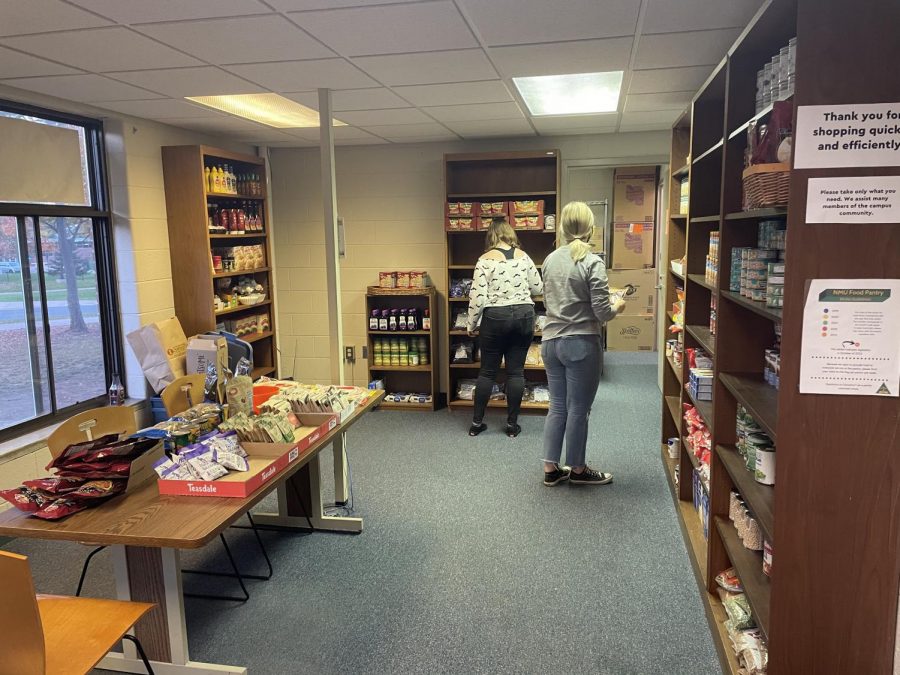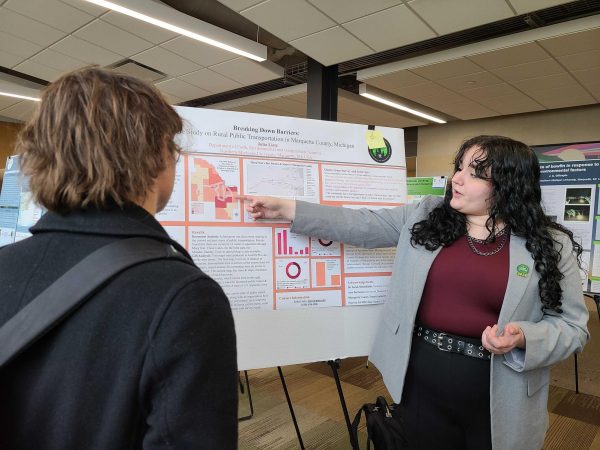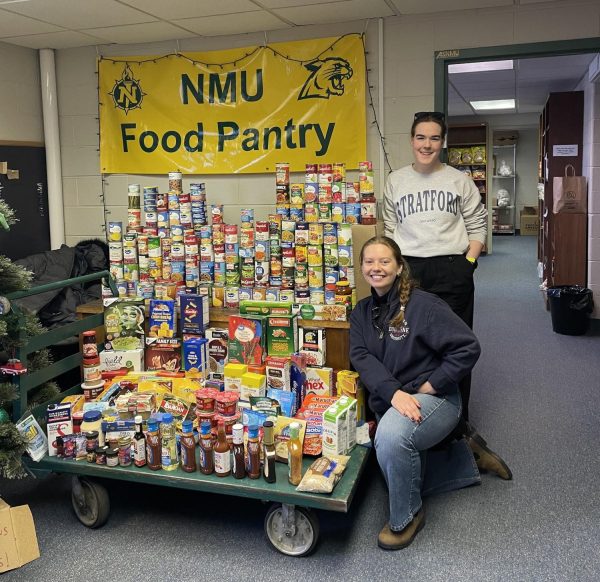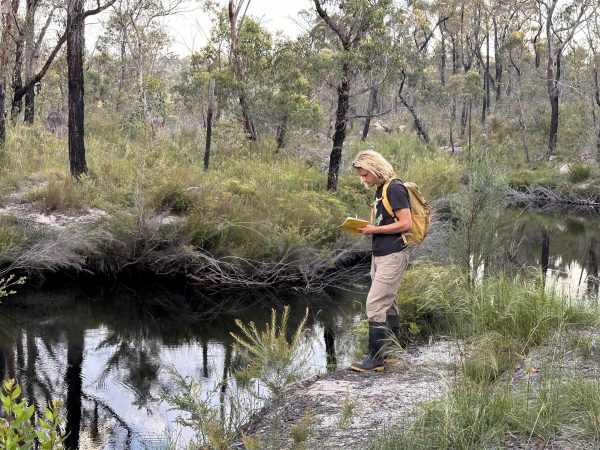NMU Food Pantry assists students, faculty in need
Interns Sarah Huiber and Mandy Helppi (left to right) help restock the shelves in the NMU Food Pantry. The food pantry is open to any student, faculty or staff member that may require extra assistance getting food or personal items.
October 13, 2021
The NMU Food Pantry is a place where any students, faculty and staff needing assistance can get free food and personal care items.
Joey Bogaudo, junior bio-physiology major and intern at the NMU Food Pantry, said, “People do not always have access to food, or cannot afford food, and with that, there is a big problem of food insecurity here and everywhere, but we are trying to fight it.”
The food pantry is located at 101B Gries Hall, and it is currently open Wednesday from 6-8 p.m., Thursday from 4-6 p.m., and Friday at 10 a.m.-noon.
When students go to the food pantry for the first time, there is a food pantry application form to fill out stating that they are a current member of the university and a disclosure that they will not sue the pantry if they get sick after preparing the food.
Haley Rhoades, Assistant Dean of Students and advisor for the NMU Food Pantry, said, “It is a free choice food pantry. That means that individuals who visit the food pantry may choose the items that they want to have for the week … We guide people toward using one grocery bag per week, and students and community members can use the food pantry once per week.”
In addition to non-perishable food items, the food pantry has personal hygiene products, winter coats, school supplies, bedding and kitchen supplies.
Rhoades said that most of the items in the food pantry are purchased from local grocery stores or Feeding America West Michigan and some of the items are donations.
Students can donate by bringing any non-perishable items, unwanted clothing or kitchenware such as plates and mugs to the NMU Food Pantry during regular open hours.
Another way students can donate is by sharing Dining Dollars.
“Last year we had a program called Share Your Dining Dollars where residence hall students, if they had extra dining dollars at the end of the fall semester, they could share their dining dollars with the food pantry,” said Rhoades. “The Dining Services Department made a big purchase with the dining dollars and then donated the items to the food pantry.”
Rhoades is working with dining services to implement the program again this year.
There is another opportunity for students to donate through Food for Fines where the food pantry and parking services work together to forgive one parking ticket for a certain amount of groceries.
Rhoades said donating is important because “at some point, you might not have everything that you need, and at some point, you might need to use the food pantry, and you might feel better using the food pantry knowing you have paid it forward and now you need it.”
The NMU Food Pantry is an important resource for students, faculty and staff and relies on support from volunteers and the community.
“There are students who are food insecure, who do not have the resources to pay for food, and when people are not eating … they are unable to do well in school or as a student-athlete,” Rhoades said.
The food pantry has helped to reduce students’ anxiety, prioritize their other financial obligations and feed other members of their household. It also helps students realize they are not alone in experiencing food insecurity.
As well as donating, there are volunteer opportunities for students and community members.
For more information on the NMU Food Pantry or volunteer opportunities, email [email protected] or [email protected] or visit https://nmu.edu/dso/nmu-food-pantry.
































